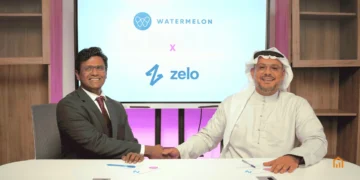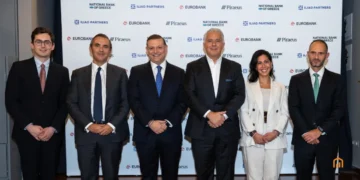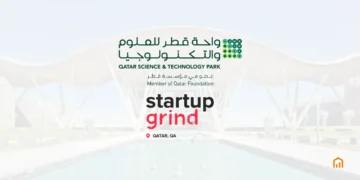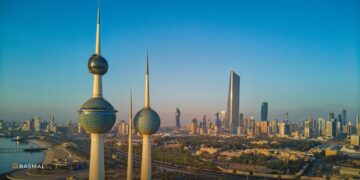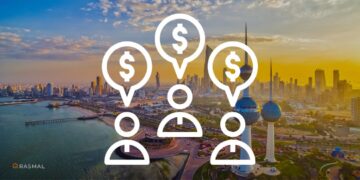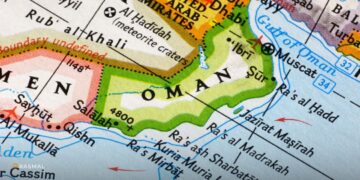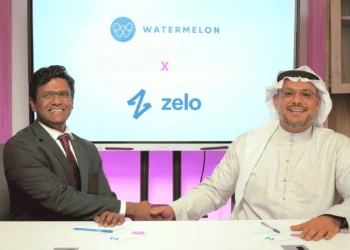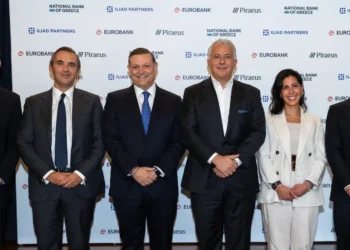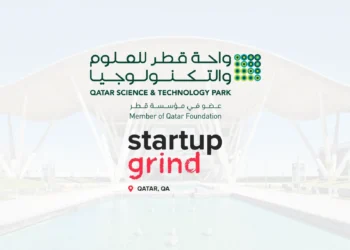- Institutional investors are leading the UAE’s real estate growth, with increased interest from global regions like Asia Pacific, focusing on stable investment opportunities.
- Developers are responding to high demand by expanding residential, commercial, and mixed-use projects, with a notable rise in delivered units expected by 2025.
- The influence of Gen Z buyers is growing, with a preference for smaller, centrally located, sustainable living spaces and co-living options.
- Despite challenges like rising construction costs and labor shortages, the UAE’s real estate market remains resilient, supported by strong government policies and demographic growth.
The UAE’s real estate market is positioned for continued growth in 2025, bolstered by increasing institutional investment and a strong emphasis on sustainability and technology-driven developments.
As the region’s real estate landscape evolves, various factors, including government policies, shifting investor dynamics, and demographic trends, will continue to influence the sector’s trajectory.
Institutional Investors Lead the Charge
In the past year, institutional investors have emerged as a dominant force in the UAE’s real estate market. According to Matthew Green, Head of Research at CBRE MENA, this surge in interest is part of a broader trend of diversification.
Green highlighted that institutional investors from various regions, including Asia Pacific, are increasingly looking to the UAE and other parts of the Middle East for opportunities in real estate. This is largely due to the slowdown in China’s real estate market and the search for more stable, attractive investment destinations.
Green also pointed out that while regional banks remain a primary source of financing, international credit firms are beginning to play a larger role in the market, signaling a shift toward alternative investment strategies.
These new entrants are focusing on structured project financing and are exploring joint ventures for speculative developments, particularly in Grade A office and industrial properties. The aim is to broaden the pool of institutional assets available for trade in the market.
Despite the challenges of global liquidity and rising interest rates, the UAE remains an appealing destination for international capital. The relatively stable financial environment and the promise of attractive yields make the UAE stand out compared to other global markets, according to Green.
A Diverse Group of Investors
Bas Kooijman, CEO of DHF Capital, emphasized that the UAE’s real estate market continues to attract a diverse range of investors, despite ongoing global economic pressures.
Among these investors, family offices have become more prominent. Kooijman attributes this growing interest to the UAE’s tax efficiencies, economic stability, and solid returns in both real estate and infrastructure.
Sovereign Wealth Funds (SWFs) have been particularly focused on premium, income-generating real estate assets that promise long-term value. This shift in investor behavior not only reflects the UAE’s standing as a safe haven for investment but also as a regional hub for forward-thinking, long-term projects.
As institutional investors and Real Estate Investment Trusts (REITs) continue to pour capital into the UAE, they contribute to a layer of stability in the market, which has historically been volatile. The growing presence of these players underpins the UAE’s real estate sector as a strong, dependable investment opportunity, further solidifying its position in the region.
Developers Respond to Market Demand
Farhad Azizi, CEO of Azizi Developments, noted the strong demand for real estate across the UAE’s residential, commercial, and mixed-use sectors. The country’s economic resilience and its status as a global business and tourism hub are major factors driving this demand.
According to the Dubai Land Department, the number of real estate units delivered in the UAE is expected to rise by 80 percent by 2025, compared to the previous year. This surge in delivered units is a testament to Dubai’s commitment to expansion and innovation, reinforcing its position as a global investment hub.
Azizi Developments has strategically adjusted its portfolio to cater to the changing needs of buyers and investors. For instance, their flagship project, ‘Riviera,’ located in Mohammed Bin Rashid City, integrates residential spaces with retail and leisure amenities, creating a dynamic, mixed-use community.
Projects like Azizi Venice and Burj Azizi cater to high-net-worth individuals seeking premium properties in Dubai. Azizi highlighted the company’s focus on offering developments that not only meet market demand but also redefine urban living through quality and design innovation.
Overcoming Rising Costs and Labor Shortages
Despite the strong demand, developers are also grappling with challenges such as rising construction costs and labor shortages. Azizi pointed out that the increasing costs of construction materials and the shortage of skilled labor have become significant hurdles.
In response, Azizi Developments has taken proactive measures to mitigate these challenges by securing construction materials directly from suppliers. This approach allows the company to take advantage of economies of scale and ensure that costs remain manageable.
Ramjee Iyer, Chairman and Managing Director of Acube Developments, also acknowledged the difficulties posed by material and labor shortages in Dubai’s rapidly growing real estate market.
He pointed out that the high demand for construction materials, particularly high-quality concrete, has led to supply constraints. To manage these challenges, Acube has leveraged its longstanding relationships with suppliers to secure the necessary materials and ensure that projects are completed on time, without compromising quality.
Additionally, KASCO Developments has emphasized the importance of early planning to mitigate cost fluctuations. Mustafa Al-Kaissi, Chairman of KASCO Developments, explained that by finalizing design decisions early in the process, the company can place orders in advance, reducing the risk associated with fluctuating construction costs.
Market Outlook for 2025
Looking ahead to 2025, Kooijman remains optimistic about the UAE’s real estate market, despite the uncertainties surrounding interest rates. While higher interest rates have prompted investors to refine their strategies, Kooijman believes that the UAE will continue to stand out as a strong performer in the real estate sector.
He pointed to data from the Government of Dubai, which shows that the city’s real estate transactions surpassed AED 544 billion (approximately $148 billion) in the first nine months of 2024, with investments exceeding AED 376 billion ($102 billion).
Kooijman attributed this growth to the strong regulatory policies, world-class infrastructure, and a market environment that prioritizes stability over speculative practices. He also noted that the proportion of property fluctuation-driven investments has fallen to below 20 percent, indicating a shift towards more stable, long-term value creation.
Ramjee Iyer of Acube Developments also highlighted the positive outlook, pointing to Dubai’s ongoing population growth as a key indicator of sustained demand. With Dubai’s population reaching over 3.6 million, growing at a rate of 1.4 percent annually, Iyer believes that the demand for real estate, both for purchase and rental will continue to be strong. This demographic growth, combined with continued investor interest, is expected to support the market in the years to come.
KASCO Developments’ Mustafa Al-Kaissi echoed this sentiment, noting that while a minor market correction is possible, it is unlikely to have a significant impact on market confidence.
Al-Kaissi emphasized that the UAE’s real estate market is poised for continued growth, supported by demographic trends, government initiatives, and a strong commitment to sustainability.
Azizi Developments also remains confident in the future of Dubai’s property market. Azizi pointed out that Dubai’s competitive environment is a major advantage for investors, as the market continues to offer solid returns despite global challenges. The developer is confident that its ongoing and upcoming projects will meet the growing demand for both residential and commercial properties in the region.
The Rise of Green and Tech-Driven Developments
One of the most notable trends in the UAE’s real estate sector is the growing emphasis on sustainability and technology-driven developments. Developers are increasingly incorporating green building practices and innovative technologies into their projects to meet the rising demand for environmentally conscious and future-focused living spaces.
Also Read: The Rise of Rent-Now-Pay-Later (RNPL) in the UAE
Yogesh Bulchandani, Founder and CEO of Sunrise Capital, emphasized the importance of sustainability and mixed-use developments. He stated that developers who prioritize sustainability and innovation will be best positioned to meet the evolving preferences of consumers. These trends include creating flexible workspaces, designing buildings with green building certifications, and integrating smart technologies to enhance the quality of life for residents.
Ramjee Iyer also sees sustainability as a key driver of future developments. He predicts that the demand for green, tech-integrated, and sustainable properties will continue to grow in the coming years. While these types of projects may currently be somewhat niche, he believes they will become increasingly mainstream as consumers demand more eco-friendly and tech-forward options.
Mustafa Al-Kaissi from KASCO Developments highlighted the company’s focus on biophilic design, which integrates natural materials, green spaces, and water features into its developments. This approach not only enhances the aesthetic appeal of the projects but also promotes a healthier, more serene living environment for residents.
The Role of Gen Z Buyers in Shaping the Market
Another important shift in the UAE real estate market is the growing influence of Generation Z buyers. As this demographic comes of age, it is becoming a significant force in the market.
Gen Z buyers are particularly interested in sustainable living and modern values, and they are more likely to prioritize smaller, centrally located apartments or co-living spaces that align with their preferences for flexibility, connectivity, and eco-conscious living.
Developers are taking note of these changing preferences, and many are incorporating elements that appeal to Gen Z buyers, such as green building practices, tech-enabled homes, and community-focused amenities. As this generation continues to grow in financial independence, their purchasing power will increasingly shape the real estate market in the UAE.
The UAE’s Real Estate Market is Poised for Continued Success
As the UAE’s real estate market heads into 2025, the outlook remains positive. The increasing involvement of institutional investors, the demand for sustainable and tech-driven developments, and the steady growth of the population all contribute to a promising future for the sector.
With strategic government initiatives, robust infrastructure, and a focus on long-term value creation, the UAE is well-positioned to maintain its standing as a leading destination for real estate investment.
The combination of strong regulatory policies, demographic trends, and innovation-driven projects ensures that the UAE will continue to attract investors and developers, cementing its position as one of the most attractive real estate markets in the region.
In conclusion, 2025 will likely be another year of growth and opportunity for the UAE’s real estate market, marked by a healthy blend of institutional investment, sustainability, and technological advancement. The sector’s resilience and ability to adapt to changing demands ensure that it will remain a central pillar of the region’s economic and social development for years to come.
Follow us on Instagram, LinkedIn, and Twitter for startup & business news and inspiring stories of MENA businesses, entrepreneurs, startups, innovators, investors, and change-makers.
To report any issue or error in the story, please email us editor [at] rasmal [dot] com.
Last Updated on March 11, 2025 by Safiya K

